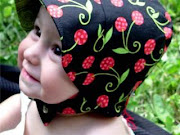This year, March is the month for Easter! Religiously it is celebrated as the resurrection of Jesus after his crucifixion, and secularly, it is celebrated with colored eggs, chocolate candies and stuffed bunnies. Easter is called a “moveable” Holiday because it is unfixed in relation to the civil calendar and follows the cycle of the moon. In the West, Easter always falls on a Sunday anytime from March 22nd – April 25,th the rule since the Middle Ages has been that Easter is observed on the Sunday after the first full moon. Whether celebrating in the religious manner with the traditions of the church, or by decorating eggs and hiding them throughout the house, most families in the United States, as well as other countries around the world celebrate the Easter Holiday in some way or another.
· In Canada, eggs and other treats are distributed by the Easter Bunny. The modern belief that eggs are delivered by a rabbit known as the Easter Bunny comes from the legend of the Goddess Eostre. So much did a lowly rabbit want to please the Goddess that he laid the sacred eggs in her honor, gaily decorated them, and humbly presented them to her. She was so pleased at the gift that she wished all humankind to share in her joy. In honor of her wishes, the rabbit went through the entire world and distributed these little decorated gifts of life.
· In the UK, families exchange chocolate eggs on Easter Sunday. They also enjoy a traditional Sunday Roast Dinner and eat foods like Simnel cake, a fruit cake with eleven marzipan balls representing the eleven faithful apostles. Hot cross buns are also eaten through Holy Week and the Easter period. In Northern England and Ireland, families gather together and roll decorated eggs down steep hills.
· Norway has a more contemporary Easter tradition that involves the solving of murder mysteries that are broadcast on television and printed in the local newspapers and magazines.
· In Finland, Sweden and Denmark, small children dressed up as witches and collect candy and treats door-to-door, in exchange for decorated pussy willows. This mixture comes from the old Orthodox tradition in which houses are blessed with willow branches, and the Scandinavian Easter witch tradition.
· People in Germany and the Netherlands light Easter fires on Easter Sunday at sunset.
· In Hungary, perfume or perfumed water is sprinkled in exchange for an Easter egg.
No matter our religious denomination, ethnicity or culture, we can broaden our horizons and add some new experiences to our own family traditions. Whether we try some new foods for Easter dinner, roll our eggs down the steepest hill in our neighborhood, or read a mystery story aloud as a family, experiencing different and unique things together can lead to some treasured family memories.
Lisa Smith is the Owner/






















No comments:
Post a Comment